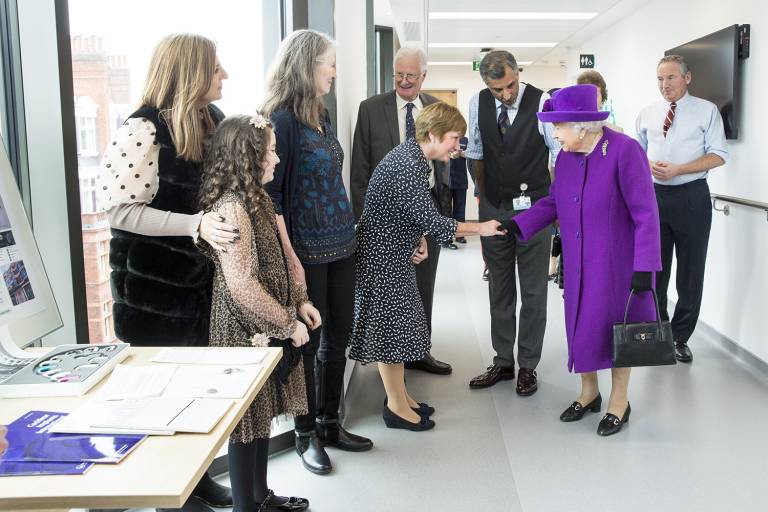Royal National ENT Hospital formally opened
19 February 2020
The new hospital will allow for stronger research links with UCL helping to deliver transformative treatments.

The Royal National ENT hospital together with the new Eastman Dental Institute was formally opened yesterday (19th Feb) by the Queen at a ceremony attended by Prof Jonathan Gale Director of the Ear Institute.
Prof Shak Saeed and Honorary Lecturer Sherif Khalil were among the members of the tour party welcoming the Queen around the new facilities.
The new hospital which has been treating patients since 2019 replaces the Royal National Ear Nose and Throat Hospital on Gray's Inn Road that was situated nextdoor to the Ear Institute. The new hospital promises to be be one of the 'biggest specialist centres in Europe for dental, ear, nose, throat hearing and balance services'
Commenting on the new facilities Prof. Gale said “As well as providing excellent facilities for NHS services the new hospital also provides unique opportunities to expand our programme of research into the causes and treatments of hearing and balance disorders. Research at the new RNENT and EDH hospital is closely aligned with research at the UCL Ear Institute through the NIHR UCL BRC Deafness and Hearing Problems Theme which aims to develop and deliver transformative treatments for people with hearing and balance disorder”
Ann Schilder Director of the NIHR UCLH BRC Deafness and Hearing Problems Theme also commented on the new hospital and its links to UCL’s research output.
“The Ear Institute's evidENT team has worked closely with the teams at the RNENT and EDH hospital to embed research clinics and activities within the clinic schedules. This has allowed us to seamlessly integrate research within patient care pathways and deliver world class diagnostic studies and trials of innovative hearing treatments.
‘The introduction of EPIC, UCLH’s integrated electronic health record system, has allowed us to collect NHS patient data in a much more structured way. Hearing researchers are working closely with data scientists at UCL and the NIHR UCLH BRC to utilise these data to better understand the causes and clinical profiles of hearing loss so that innovative hearing treatments can be targeted to individual patients’.
Links
Image
Courtesy of UCLH Communications.
 Close
Close

